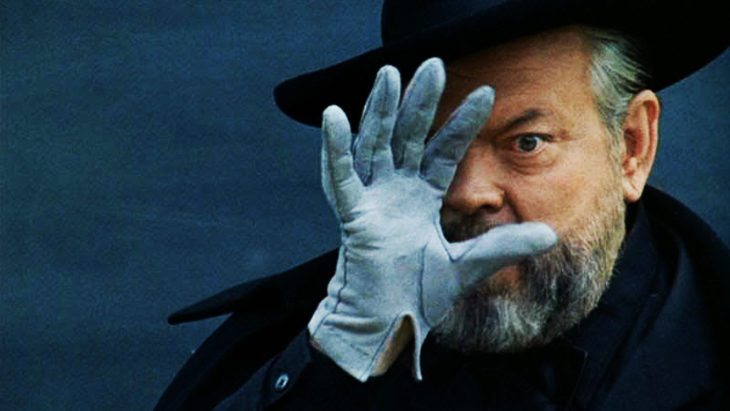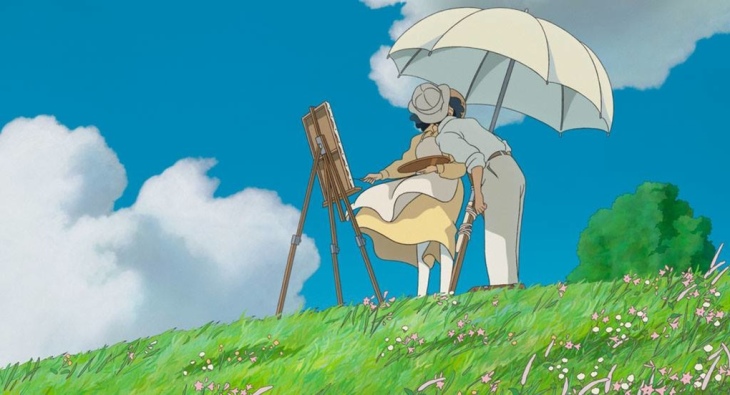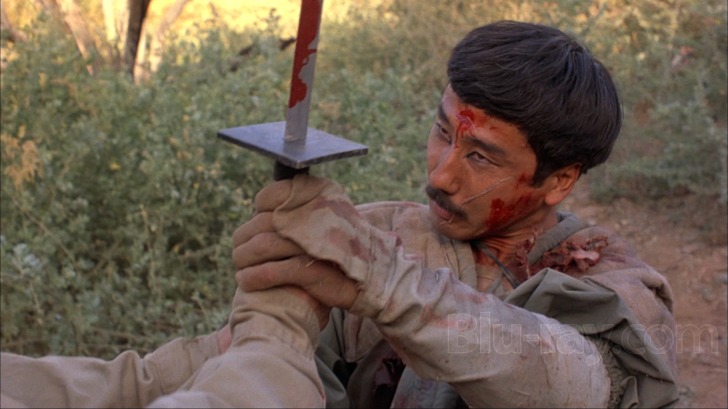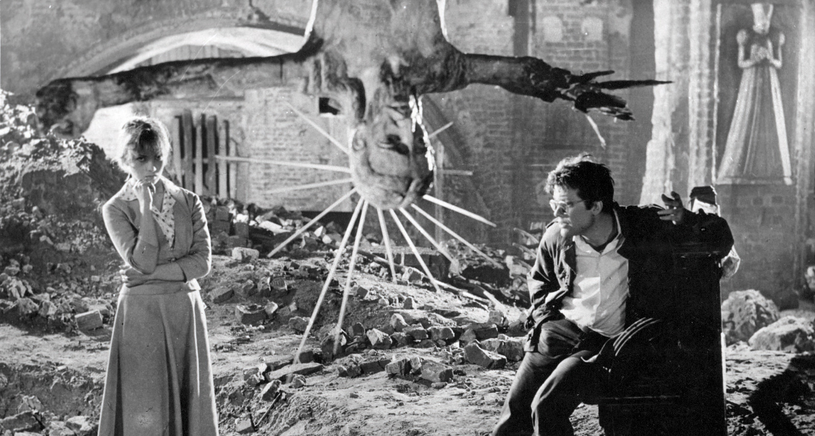
We’ve come full circle.
Two years after their massive 14-film Studio Ghibli series, the UW Cinematheque returns to the greatest animation studio of all time with The Kingdom of Dreams and Madness and The Wind Rises. Madison’s repertory cinema program will kick off its spring 2015 calendar on Friday, Jan. 23 with a presentation of The Kingdom of Dreams and Madness, Japense documentarian Mami Sunada’s inside look at the inner workings of a House Ghibli in decline and patriarch Hayao Miyazaki’s final film. The Wind Rises, Miyazaki’s story of Japanese flight engineer Jiro Horikoshi, will gets its own screening the following Saturday in the only acceptable form: with its original Japanese dub and English subtitles.

That Saturday keeps getting better though, as it also ushers in the first entry in “Wisconsin’s Own Orson Welles: A Centennial Celebration” with Citizen Kane on 35mm. Kenosha’s favorite son directed both the most important film ever made and one of the most important documentaries of all time (F for Fake on Jan. 31) but like Cinematheque’s Alec Guinness centennial, this 100 year celebration plumbs Welles’s 13-film career for under-appreciated work, too. Films like The Lady from Shanghai (Feb. 14), where Welles’ sailor falls in love with the inimitable Rita Hayworth and gets mired in a twisted murder plot, and Mr. Arkadin (Feb. 21), of which the Criterion Collection credits eight different iterations. Cinematheque will screen the British cut, Confidential Report, but even this contentious studio print conveys the danger Robert Arden’s con uncovers when Welles’ eccentric billionaire hires him to investigate his past. The series gets a spiritual companion with a special 35mm presentation of Welles protegee Leslie Stevens’ Private Property (Apr 25) as well as a promised sister program at next year’s Wisconsin Film Festival.
My wish for Superman IV: The Quest for Peace wasn’t granted, but the “Cannon Canon” and the appropriately punny “Cannon Fodder” Marquee collaboration with WUD Film offer enough lowest lows to balance the Cannon Film Group’s highest of highs. Those lows include the breakdanceploitation flick Breakin’ (Feb 2) and “Bad Cinema” alumnus Ninja III: The Domination (March 2), where Lucinda Dickey’s telephone linewoman/aerobics instructor gets possessed by an evil samurai spirit seeking revenge from beyond the grave. The proverbial highs feature a 35mm print of Jean-Luc Godard’s modernized, Godarded King Lear (Feb 20) with Molly Ringwald and Woody Allen and Speed predecessor Runaway Train (Jan 30), in which John Voigt and Eric Roberts’ convicts avoid prison by hopping onboard an engineer-free freight train. The brainchild of Israeli transplants Menahem Golan and Yoram Globus, Cinematheque’s tribute program begins on Jan 30 with The Go-Go Boys, Hilla Medalia’s “inside story” of the studio’s rise and subsequent downfall.

Cinematheque will also give the Chazen Art Museum a break from Hitchcock (although at this point, Alfred Hitchcock Presents might be all that’s left) with a Sunday series dedicated to Mario Monicelli, the late master of Italian comedy. The second of two centennial series next spring, the program begins with Big Deal on Madonna Street (Feb 1), Monicelli’s comedic masterwork about thieves (including the late, great Vittorio Gassman) who screw up a pawn shop heist. Also look for We Want the Colonels (Feb 22), a pitch black comedy about a fascist coup d’etat and Caro Michele (Mar 1) in which Mariangela Melato’s husband is killed just as she gives birth to their son.
The back-end of Chazen programming will be taken up by “Universal ’71” featuring Dennis Hopper’s The Last Movie (Mar 8) finds Hopper’s stunt coordinator contending with Peruvian natives who don’t understand the difference between movie magic and actual violence. Don Siegel’s The Beguiled (Mar 22) stars frequent collaborator Clint Eastwood as a Union Soldier who plays the affections of his all-women Confederate caretakers against one another. The series also features the American debut of Milos Forman with Taking Off (Apr 5), in which parents “rediscover their youth” in the absence of their children. A celebration of Universal Pictures releases that found Hollywood executives rewarding young and up-and-coming filmmakers with sizable budgets, “Universal ’71” feels like it’s from a time long gone by, even if I am anxiously anticipating a “Universal ’14” follow-up with Non-Stop and The Purge: Anarchy.
Of course, it wouldn’t be spring without Cinematheque’s annual collaboration with the Department of Latin American, Iberian, and Caribbean Studies. This year’s “New Argentine Cinema” includes a Saturday double-feature of Lisandro Alonso’s Jauja (Mar 7) and Martin Rejtman’s Two Shots Fired. Additional programs include a series of films curated by European film archive Cineteca di Bologna as well as a Martin Scorsese-stamped program of Polish Masterpieces, among them Krzysztof Kieślowski’s Blind Chance (Apr 3) and three by Ashes and Diamonds director Andrzej Wajda. A “2 X” pair of villainous Richard Attenborough roles seem designed to dissociate the late British actor from his jovial naturalist in Jurassic Park. But maybe Jurassic Park screenwriter David Koepp can reassure us everything will be okay when he presents Steven Spielberg’s War of the Worlds (Mar 11) as well as his own comedy Ghost Town (Mar 12) in person on 35mm.

UW-Madison professor and filmmaker JJ Murphy will screen a 16mm print of his Print Generation (Feb 12), a continuously reprinted compound of 60 seconds of footage. There’s also the Madison area premiere of the gargantuan Winter Sleep, from Wisconsin Film Fest alum Once Upon a Time in Anatolia director Nuri Bilge Ceylan. Seriously, it’s 196 minutes.
- The UW Cinematheque begins its spring calendar on Friday, Jan 23 in what will be a newly-remodeled 4070 Vilas Hall. All screenings, unless otherwise noted, are FREE and open to the public. Head over to cinema.wisc.edu for the complete schedule.
